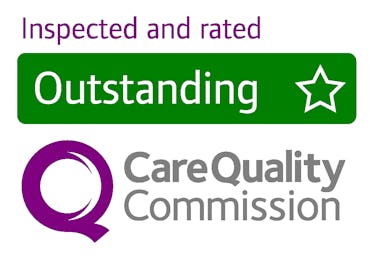What is intermediate care?
Intermediate care, sometimes also called reablement care, is a form of temporary care that supports an individual to remain at home while they recover from an illness, accident or hospital stay.
Intermediate care allows people in hospitals, or other care facilities, to be discharged and recover in the comfort of familiar surroundings. Not only does this reduce pressure on the hospitals and care system but it is also beneficial for the individual. While it’s important to go to hospital if one is very ill, studies show that the best outcomes are achieved when an individual recovers at home, as opposed to a hospital setting.
People who are admitted to hospital often lose their independence very quickly, which makes it harder for them to return home and get back to doing the things they enjoy. Not to mention the negative physical impacts of confined bed rest, such as muscle and function loss.
The aim of intermediate care is to help the individual recover, regain abilities and strength, and adapt to life at home, in order to remain well and live independently. Because intermediate care is short-term there is a strong focus on a specific goal, or goals, that the individual wants to achieve. It could be relearning how to move around in the home safely, being able to dress one’s self, or easily prepare a meal.
Intermediate care is:
- Short-term, usually a maximum of six weeks
- Intensive support, often from a range of professionals
- Goal specific, agreed by the individual and professionals
- Focused on helping the individual practice doing things for themselves
When is intermediate care needed?
There are many situations where an individual can benefit from intermediate care support, such as:
A fracture, fall or illness can all affect an individual’s mobility and function. In the elderly, in particular, it can take time to recover and regain balance, agility and self-assurance. Many people need a helping hand as they recuperate.
If an individual becomes ill, for whatever reason, intermediate care may be a preferred alternative to staying in hospital. It can also significantly reduce the need for individuals to be re-admitted to hospital following a bout of illness.
Intermediate care helps people continue living at home even when they face increasing difficulty with daily life due to illness or disability. With the support of intermediate care, an individual can learn the skills needed to remain living independently in their own home.
Hospitals are the best place for critical care and emergency treatment, but not for recuperation and recovery. Once treatment has ended individuals can achieve best recovery outcomes if supported at home, where they can regain physical movement, daily routines and autonomy.
Intermediate care is especially helpful for individuals suffering from dementia, who find the move to unfamiliar surroundings distressing and disorientating.
If you think that you or a loved one could benefit from intermediate care speak with your primary healthcare professional for more details. You can also learn more by reading the NICE guidelines.
Who pays for intermediate care?
Intermediate care is funded by the NHS and is not means-tested. When an individual is deemed eligible, the NHS will provide intermediate care free of charge for a maximum of six weeks. After this time, an assessment will be carried out to see if continuing care is needed.
If continuing care is required the assessment will determine if the individual needs additional short-term, or ongoing long-term, care and support. The NHS might provide funding through a personal health budget. To check if you are eligible for a personal healthcare budget, known as NHS Continuing Healthcare funding, you can speak to your GP or your primary healthcare practitioner.
If you are allocated a personal healthcare budget you can choose which care provider you want to provide your intermediate care. Here at Trinity Homecare, we are experts in intermediate care and can arrange all the details of your care for you. Removing the stress of having to deal with multiple organisations, while still retaining your autonomy of choice, is much welcome at a time of illness or disability.

How to arrange intermediate care
To know if you or a loved one is eligible for intermediate care speak directly with your primary healthcare professional, such as your GP. An assessment will be made by a professional that takes into account your abilities, needs, and wishes, with the involvement of your family where appropriate. If intermediate care is recommended you have the choice of which care provider you would like to work with.
Contact us
Trinity Homecare provides compassionate and professional intermediate care in most parts of England, having been providers of at-home care for over 25 years. Find out all the areas we cover.
If you would like to arrange intermediate care with us get in touch today and we can help you understand the process and arrange all the details necessary to implement your immediate care as quickly as possible.
Our expert care team is on hand to deal with your enquiry seven days a week, from 7.30am to 5.30pm. Simply call us on 01908 183 4648 or complete our online enquiry form to find out how we can help.













